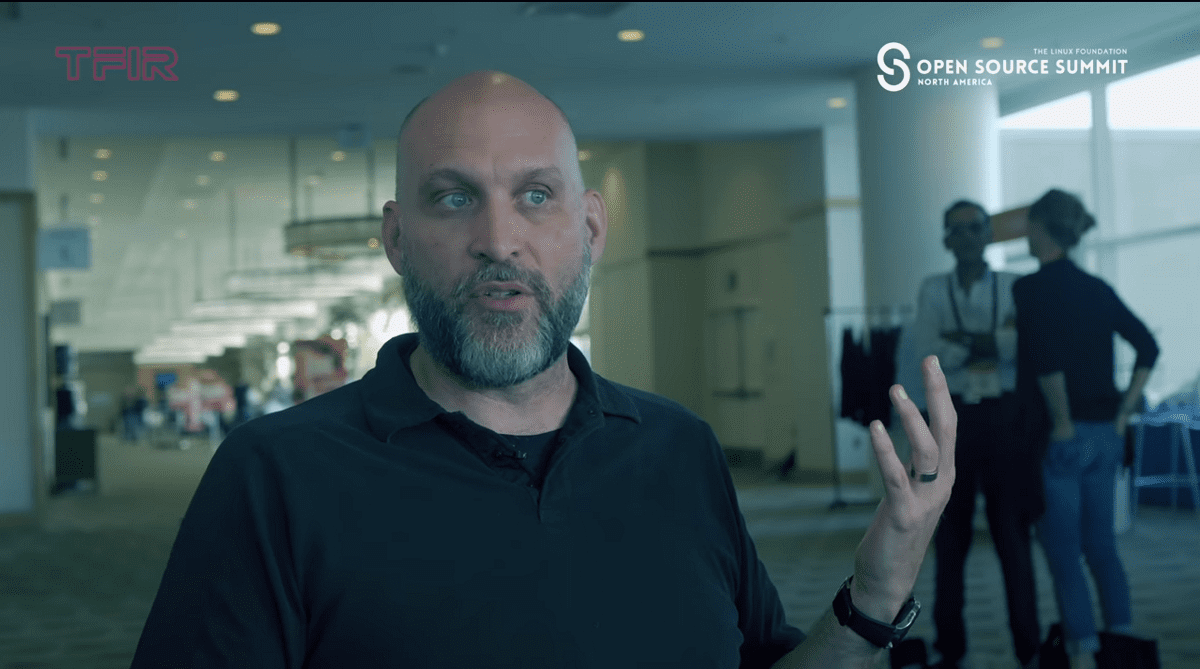
TFIR posted a video interview with Greg Kroah-Hartman, who is responsible for maintaining a stable branch of the Linux kernel and is the main contributor to various subsystems of the Linux kernel and the founder of the Linux driver project). In this 30-minute interview that Greg Kroah-Hartman gave during the 2019 Open Source Summit, he discussed a variety of topics including choosing a new Linux distribution for their computers.
In this interview Greg talked about changing the layout in his work systems. Even though Greg worked for 2012 years at SUSE / Novell until 7, stopped using openSUSE and now uses Arch Linux as the main operating system on all your laptops, computers, and even in cloud environments.
As well run multiple virtual machines on your computer with Gentoo, Debian and Fedora to test some tools in user space.
Greg had to switch to Arch due to the need to work with the latest version of some program and Arch turned out to be what was needed.
Greg also knew several Arch developers for a long time And he liked the distribution philosophy and the idea of continuous update delivery, which does not require the periodic installation of new versions of the distribution, which also allows him to always have new versions of the programs.
An important factor is the fact that Arch developers try to stay as close to the upstream as possible, without introducing unnecessary patches, without changing the behavior envisioned by the original developers, and promoting bug fixes directly in the main projects.
The ability to assess the current status of programs allows you to get good feedback in the community, quickly spot emerging bugs, and quickly receive fixes.
Of the Arch advantages, he also mentions the neutral nature of the distribution, developed by an independent community of individual companies and the wonderful Wiki section with understandable documentation (A page with a manual on using systemd is an example of a high-quality, helpful excerpt.)
The interview can be found on YouTube as well as the dialogue that a user shared on the network.
I don't use openSUSE anymore, I use Arch. And I think my build system actually runs Fedora. I still have several virtual machines running Gentoo, Debian, and Fedora to do some testing on some user space tools.
But yeah, all my laptops and everything else is switched to Arch these days… I have a Chromebook that I play with, and you can run Linux applications and of course this SSH on anything… »
Why Arch? “At the moment I had something I needed. I don't remember what it was, the latest development version and other things. Plus I've met a number of Arch developers over the years.
His idea of an ever-advancing system is the way to go… It's neutral, it's community-based, it has everything I need. It works very, very well. In fact, I have converted my cloud instances that I have all to Arch ... It's nice »
Also, »Your Wiki is amazing. Documentation: it's like one of the best resources available today… If you are looking for a user space program and how to configure and use it. Actually, the systemd Arch Wiki pages are one of the most amazing resources out there ...
“One of Arch's main policies, or rather his philosophy, is that I like him. And as a developer, I want you to… They are very good at feedback to the community. Because I want that proof, I want to make sure things are fixed.
And if it's broken, I quickly learn it, repair it, and remove it. So it's actually a very good feedback loop. And those are some of the reasons why I need it.
Source: https://www.tfir.io